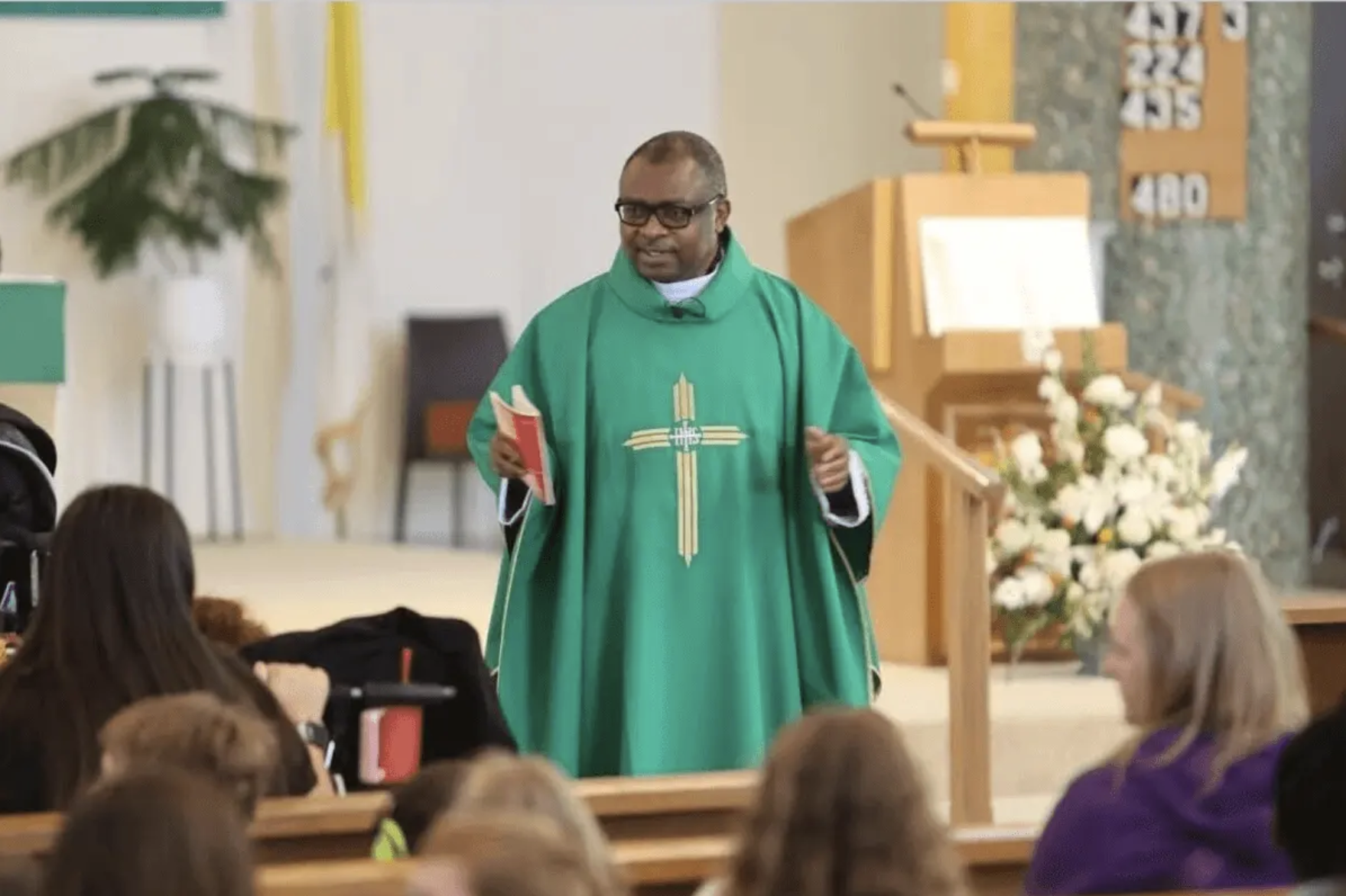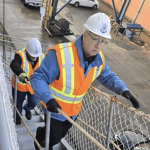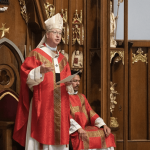KINGSTON, Ont. (CCN) — Raised on a history of mission in Africa, Fidei Donum priests are one of the global Church’s best-kept secrets.
Diocesan clergy sent as “gifts of faith,” the order continues to rekindle Catholic communities with vibrant spirituality, forging a borderless mission of unity and evangelization.
Pope Pius XII’s 1957 encyclical Fidei Donum called on clergy from Europe to better serve in mission territories as an answer to the rapid growth of the Church in Africa, which often failed to produce enough local clergy to serve the Christian population.
Over time, the practice has come full circle, with the Fidei Donum movement now more commonly attributed to African priests, many from Nigeria, who serve their missions in the West. From mission lands to missionaries themselves, today’s Fidei Donum are a reminder of the one holy and apostolic Church, making parishes outside of Africa rich, Spirit-filled places of worship and encounter.
With a passionate and determined vocation deep inside them, many men left their homes and local dioceses to serve parishes across continents and cultures, large numbers of whom ended up in Canada, the U.S and Europe.
One of these men is Fr. Cosmas Ajawara, a Fidei Donum priest who arrived in Canada in 2003 and now serves as the pastor of St. Joseph’s Parish in Kingston, Ont. For Ajawara, his experience in answering his call to serve the universal Church for the last 22 years has been one of sacrifice and deep fulfillment.
“What drew me to this was the deep conviction that the priesthood is not meant to be confined to only geographical boundaries, just as the apostles left their homelands to spread the Gospel and bring the faith beyond the familiar. Saying yes to being a Fidei Donum priest meant being aware of placing myself at the service of the universal Church,” he said.
His decision to leave Nigeria behind for a life as a Fidei Donum priest was heightened when Ajawara attended Toronto’s World Youth Day in 2002, where the late St. Catharines’ Bishop John O’Mara highlighted Canada’s priest shortage. Combined with his home bishop in Orlu, Nigeria, sending him to Canada for studies, the priest asked for permission for a life of service here in Canada.
His request was granted in 2003, with his first assignments at Holy Cross Parish in Kemptville near Ottawa and the mission of St. Daniel’s Church in South Mountain, beginning his Fidei Donum life in the Archdiocese of Kingston. He has served at St. Joseph’s since 2022.
The move involved real challenges, he admitted, with cultural adjustments and differences in worship styles making things tricky in the beginning. For Ajawara, inspiration from the Church’s early missionaries to Nigeria allowed him to view his work as a full circle, a reverse mission in action and a lifetime worth of giving back.
Today, African Fidei Donum priests are more than temporary fill-ins for clerical gaps. They are a reinvigorating presence of faith with a vibrant spirituality, Eucharistic devotion, passionate preaching and deep spiritual resilience.
“These priests strengthen the unity of Catholics in general. When a priest like myself, born in Nigeria, comes to a place like Canada, Europe or the U.S, it is a living sign that we are not isolated dioceses, but members of one body,” he said.
“Many years later, this has begun to create bonds of friendship and solidarity that transcend national, cultural and linguistic barriers between us as Catholics. While there were missionaries before, Fidei Donum has been enshrined in the missionary culture of the Church.”
With St. Joseph’s pastor spending 22 of his 27 years as an ordained priest here in Canada, he says his calling has both enriched his pastoral work and deepened his personal faith, allowing him to contribute to the Archdiocese of Kingston’s growth over his tenure.
“It’s a beautiful thing to see the oneness, the unity of the Church being promoted in this way because that’s what it’s all about. That I could come from Nigeria and be the pastor says a lot about where we are spiritually as a Church,” he said. “It’s also a testimony to the people I serve themselves; they also see the oneness of the Church, which is a symbolic way to see that we are all one, irrespective of our creed, colour and culture.”




